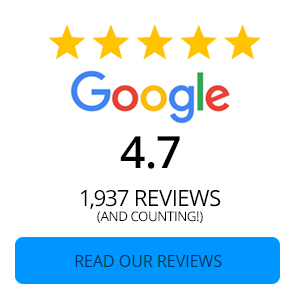You and your soulmate likely learned early on that while you may be in harmony with most things, the occasional purchase can cause friction. Compatibility will only get you so far when it's time to make a big financial decision together.
Big financial moves don't need to be troublesome, however. With a few tips, you can navigate these tricky decisions and come out stronger on the other side.
Here are a few of the best ways to keep your cool, make the best choice, and strengthen your relationship all at once.
Know (and agree upon) the biggies. Don't be surprised when suddenly, you're faced with the biggest purchases Americans face today: houses and cars are obvious, but did you know new babies, boats, cemetery plots, replacement household appliances and second homes are also among the most common biggies? What about home upgrades, or your kids' college or weddings? While some of these can be avoided, others should simply be expected. Anticipating them allows you to save early, diffusing tension before it builds.
Practice candidness. Learn the skill of opening up about everything - everything - and asking the same of your spouse. That way, you'll know no one (including you) is harboring an under-the-radar agenda that may derail the collective unit. If you're able to admit, for example, that fear is a part of your decision-making, then you can work through the fear together to get back on the same page.
Read reviews together. As you're choosing a college, real estate agent, a brand of vehicle, retirement community, or boat - whatever it is you're considering, commit to reading customer ratings and reviews together. Since reviews are bite-sized, you can read them in the car or during meals without needing to coordinate schedules or get a sitter to keep the kids. Plus, honest client reviews are the best way to vet brands as product websites can be one-sided.
Hold hands while you talk. Even if you're at odds about which direction to take, play footsie. Hold hands as you deliberate. High-five when you do agree on the small things. According to Tiffany Field, Ph.D., and author of Touch and Director of the Touch Research Institute at the University of Miami School of Medicine, physical touch reduces anxiety, depression, physical pain and even aggressive behavior.
Hit "pause." Separate needs from wants on paper in a list form, then assign a time limit on your wants. If, after your established time (a month or two) has passed and you both still want the item, then it's a legitimate purchase to consider. This weeds out and prevents many of the big-ticket items (think workout machines or musical instruments) that end up collecting dust a year later.
Remember the give-and-take. The Chinese have long respected opposing forces in the universe, appreciating both yin and yang instead of discouraging one for the other. As you mull a big buy, remember you're a team of individuals - individuals who bring different strengths to the table. To make the best choice, it takes both minds.
Narrow down the options. Experts at The University of Texas at Austin reviewed a study wherein couples disagreed on a big purchase. What they found was interesting: When people narrowed their choices based on criteria they disagreed on, the result was a more satisfied purchase on both sides. For example, if a wife hates the color blue, and the husband has an aversion to pickup trucks, cutting all blue pickups from the ocean of vehicle choices was a satisfying place to start. The more factors you can eliminate this way, the happier you'll both be.
Save up together. Once you're on the same page and ready to tackle a goal, cut back on your favorite indulgences separately so you can reap the benefits together. If your daily drive-through espresso drinks are standing in the way of your family's dream vacation, for example, sacrifice together so it's more rewarding when you celebrate together. Download a free app like Urge, which helps eliminate impulse buys, tracks your good choices, and helps you visualize your progress toward achieving a monetary goal.
The fact is, no one will ever spend or save money exactly the way you do. After all, that's what makes you... well, you. What tips do you have for other readers wondering about financial compatibility when the rubber hits the road?
Image Source: Flickr

